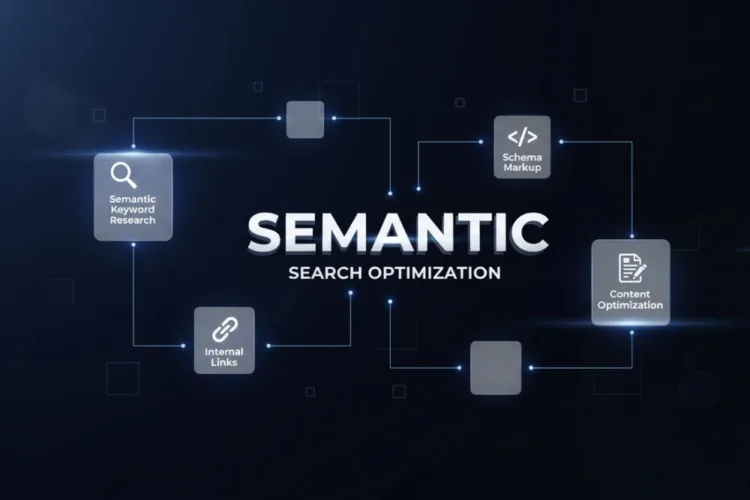
Businesses and content creators have long relied on SEO. But with the rise of generative AI, we’re entering a new era: Generative Engine Optimization (GEO). While SEO is all about keywords and rankings, GEO focuses on AI-generated content that answers users’ questions directly, without the need for traditional searches. So, will GEO revolutionize search, or will SEO hold its ground? Let’s find out.
Search Engine Optimization
SEO is like a trusty old map for navigating the vast internet. It’s all about fine-tuning your website and content so you pop up higher in those search engine results pages (SERPs).By giving your site a makeover with keyword research, on-page optimization, link building, and a sprinkle of technical SEO.
The main goal is to make sure people can easily find your content when searching for answers. Nail your SEO game, and you’ll see a boost in website traffic, happier user engagement, and ultimately, more conversions.
Generative Engine Optimization
GEO is a developing concept that leverages the power of generative AI models, for instance, language models like GPT-3 and image models like DALL-E, to create content tailored for search engines and users alike. GEO focuses on optimizing the output of these AI models to rank well in search results, much like traditional SEO optimizes human-created content.
With GEO, businesses and content creators can leverage AI to generate high-quality, relevant, and engaging content at scale. This includes textual content like articles, blog posts, product descriptions, and even code snippets, as well as visual content like images, graphics, and videos.
Key Differences Between SEO and GEO
- Content Generation: SEO primarily focuses on optimizing existing content, while GEO leverages AI to generate entirely new, highly relevant, and engaging content tailored to specific search queries and user intent.
- Automation: SEO requires significant manual effort, including keyword research, content creation, and optimization. GEO, on the other hand, automates a significant portion of the content generation and optimization process, reducing the need for manual labour.
- Scalability: SEO can be time-consuming and resource-intensive, especially for large-scale content production. GEO, with its automated content generation capabilities, offers enhanced scalability, allowing businesses to produce high-quality content at a faster pace.
- Personalization: While SEO aims to optimize content for broad keyword targets, GEO enables personalized content generation by understanding user intent and tailoring content to specific search queries and user preferences.
- Adaptability: SEO strategies often require manual adjustments to keep up with evolving search engine algorithms. GEO, powered by machine learning, can adapt and learn from data, potentially enabling more efficient and effective optimization over time.
- Creativity and Innovation: SEO primarily focuses on optimizing existing content, while GEO opens up new avenues for creativity and innovation by generating entirely new, unique content tailored to user needs and search engine requirements.
- Data-driven Insights: GEO leverages vast amounts of data and machines to uncover the secrets of user behaviour search trends, and content performance, enabling more informed and effective optimization strategies.
Benefits of SEO
Despite the emergence of GEO, SEO remains a crucial component of any digital marketing strategy.
Here are some:
- Proven Track Record: SEO has a long-standing history and a wealth of best practices, case studies, and success stories to draw upon.
- Human Touch: Human-created content often resonates better with audiences, as it can convey nuanced emotions, storytelling, and personal experiences more effectively.
- Trust and Authority: Well-optimized websites and content can establish trust and authority in their respective industries, leading to improved brand reputation and credibility.
- Longevity: While search engine algorithms evolve, the core principles of SEO remain relatively stable, ensuring that optimized content retains its value over time.
Benefits of GEO
While GEO is still in its infancy, it holds significant promise and potential benefits:
- Speed and Efficiency: AI models can generate content at an unprecedented pace, enabling businesses to keep up with the ever-increasing demand for fresh and relevant content.
- Personalization: GEO can deliver highly personalized content tailored to individual users’ preferences, search queries, and browsing behaviours.
- Adaptability: AI models can constantly learn and adapt to changing search patterns, user behaviours, and algorithm updates, ensuring that the generated content remains relevant and optimized.
- Cost-Effectiveness: Once the initial investment in AI infrastructure is made, GEO can potentially offer long-term cost savings by reducing the need for human content creation.
- Scalability: GEO allows businesses to scale their content creation efforts effortlessly, enabling them to expand their online presence and reach new audiences more efficiently.
The Future of Search: SEO vs GEO
As the capabilities of generative AI models continue to advance, GEO will likely play an increasingly significant role in the future of search. However, it’s important to note that GEO is not a replacement for SEO, but rather a complementary approach.
The future of search is a blend of both SEO and GEO, where human-created and AI-generated content coexist and cater to different user needs and preferences. SEO will remain essential for establishing trust, authority, and brand reputation, while GEO will excel at delivering personalized, up-to-date, and highly relevant content at scale.
Moreover, as search engines evolve to better understand and interpret AI-generated content, GEO strategies will need to adapt accordingly. This may involve developing new techniques for optimizing AI output, ensuring ethical and transparent content generation, and addressing potential issues such as AI bias and misinformation.
Transitioning from SEO to GEO
As businesses and content creators explore the potential of GEO, it’s crucial to adopt a strategic and well-planned approach to transitioning from traditional SEO to incorporating GEO into their overall digital marketing strategy. Here are some key considerations:
- Gradual Integration: Rather than abandoning SEO entirely, it’s advisable to gradually integrate GEO into your existing SEO efforts. You can assess the impact and effectiveness of AI-generated content while maintaining your established SEO presence.
- Hybrid Approach: Consider a hybrid approach where you combine human-created and AI-generated content. This can leverage the strengths of both approaches.
- Quality Assurance: Implement strong quality assurance processes to ensure that AI-generated content meets your standards for accuracy, relevance, and adherence to ethical guidelines. This may involve human oversight, fact-checking, and content moderation.
- Continuous Learning: Stay informed and updated with the latest developments in AI and search engine algorithms. Continuously refine your GEO strategies based on user feedback, performance metrics, and industry best practices.
- Collaboration and Upskilling: Foster collaboration between your SEO, content, and AI teams to ensure seamless integration of GEO into your overall digital strategy. Invest in upskilling your teams to develop the necessary expertise in AI and prompt engineering.
Tools and Resources
To effectively implement and manage both SEO and GEO strategies, businesses and content creators can leverage a variety of tools and resources:
SEO Tools:
- Keyword research tools (Ahrefs, SEMrush)
- On-page optimization tools (Yoast SEO)
- Link analysis and building tools (Moz, Majestic)
- Site auditing and monitoring tools (Screaming Frog, DeepCrawl)
GEO Tools:
- AI language models (GPT-3, BERT, XLNet)
- AI image generation models (DALL-E, Stable Diffusion)
- Prompt engineering resources and communities
- AI content moderation and quality assurance tools
In conclusion, the interplay between SEO and GEO will shape the future of how we discover, consume, and engage with online information. While SEO remains a cornerstone, the rise of GEO presents exciting opportunities for businesses and content creators to leverage the power of AI to deliver personalized, relevant, and engaging content at scale. Embracing a strategic and well-planned approach to integrating GEO into your existing SEO efforts will be crucial for staying ahead of the curve.



